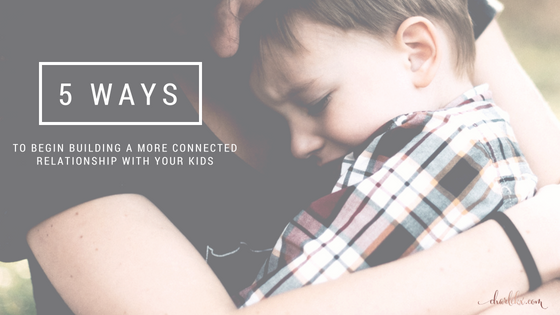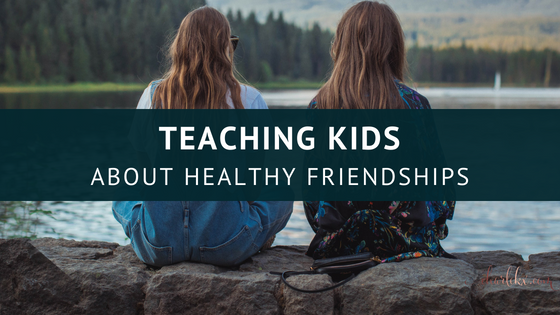
If you have a desire to develop a more connected relationship with your kids, here are five ways to begin turning that desire into a reality.
1.) Listen. Take the time to listen intently to your child and truly hear what they’re trying to tell you. A huge part of that means, you’re committed to putting away any distractions (that includes your phone) and fully focusing your attention on your child. When you listen in this way, your child will come to know that they are really important to you. In addition to that, you’ll be modelling a good aspect of a healthy relationship to them and that’s pretty awesome.
2.) The eyes are the window to the soul. That saying is so true. If you want to get some insight into your child’s inner world, their thoughts, feelings etc. take the time to look into their eyes. Now, every child has a different tolerance level for eye contact so take that into consideration but as much as they’ll allow it, let them know you’re paying attention to them by looking into their eyes as they share with you.
3.) Positive touch. Another way to deepen the connection with your child is to use positive touch. You could be sitting shoulder-to-shoulder, rubbing their back, cuddling them or holding hands. The reason why this is important, is because positive physical touch will help lower their heart rate, slow their breath, decrease their stress hormones and help boost their immune systems. Try for twelve positive touches per day and over time you’ll see the wonderful difference it makes.
4.) Empathize. This one ties in with listening but it goes even further. When your child is sharing something important to them, don’t listen to jump in and respond. Instead, take a moment to pause after they’ve shared. Allow silence to settle for a bit, that gives them more time to talk if there’s anything else they want to say. After that moment of quiet, you can respond by saying something like, “I’m really sorry that happened to you.” Simply acknowledging what our kids go through; empathizing with them, will help them feel like you understand them, you get them and that you are there for them.
5.) Smile and laugh. In our society that’s filled with incessant busyness, try and pause and smile at your kids more often. The first moment you see them in the morning, offer them a big smile. Let them know you’re happy to see them and you’re grateful to have them in your life. Find times throughout the day when you’re together to laugh and have fun together. These are the childhood memories you want your kids to remember, so take the time to smile, laugh and have fun with them.
We can all learn from each other. So, share some of the ways you are building a more connected relationship with your kids?

